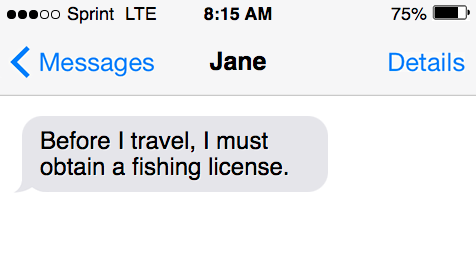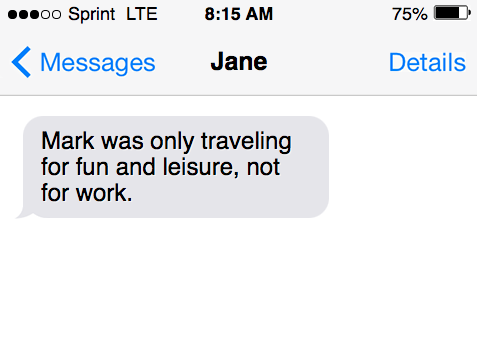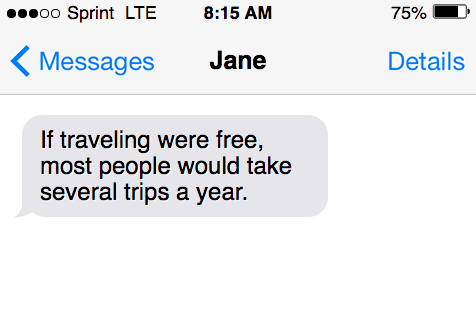What is the correct way to spell “traveling?” Can you spell it “travelling” if you want?
To travel the world and visit other countries is often seen as an enjoyable way to spend one’s free time.
But how do you spell “traveling,” the verb form of “travel”?
Don’t search anywhere else; here is everything you need to know about the term “travel.”

“Traveling” or “travelling”
The difference between the two terms is your audience.
That said, “traveling” is the preferred way to spell the word in the United States.
You will find this correct spelling in the Merriam-Webster dictionary.
However, if your readers are located in the United Kingdom in the Commonwealth, the term is spelled “travelling.”
The subtle distinction of one “L” versus two simply depends on what country you are writing in/for.
Therefore, “travelers” and “traveled” are the U.S. forms, while “travellers” and “travelled” are the UK forms.
No matter the country, the present tense form of the word “travel” is spelled the same and does not require a second “L” at the end.

Root word: travel
Travel can serve as a verb or a noun.
As an intransitive verb, “travel” is defined as “To go on a trip or tour to a destination.”
Similarly, as a transitive verb, “travel” is defined as “to journey through or over.”
The definition for “travel” in its noun form is “a journey, especially to a distance or unfamiliar place.”
Be aware that the noun version of the word is often used as a plural.

Travelers definition
Another term that comes from “travel” is “traveler” or, in its plural version, “travelers.”
That said, a traveler is commonly referred to as “one that goes on a trip or journey.”
Essentially, “traveler” can be used to describe a person who is taking a trip by car, train, plane, etc.
If subjects in a sentence are going on a journey through different countries or simply to the grocery store, they are “travelers.”

What type of word is “traveling?”
Verbs ending in “-ing” are either present participles or gerunds.
The two styles of words look the same, but their functions in a sentence are different.
Further, present participles can be used in all continuous verb formations (past, present, future, etc.).
With verbs ending in “-ing,” the helping verb will tell the reader the tense (acting as a link) while the present participles remain unchanged.
Take the below examples, for instance:
- “The boy is watching the trains.”
- “Shelia was waiting for her survey.”
- “My family will be coming to Canada in July.”
- “The group would be moving to Germany if the cost wasn’t an issue.”
- “I would have been picking out my free ice cream flavor by now.”
Intransitive vs. transitive verbs
According to the Merriam-Webster definition, “traveling” can act as both a transitive and intransitive verb.
Transitive verbs will always have a noun that receives the action described by the verb; this noun is called the direct object.

“Tommy lifts the weight.”
In the previous example, “lifts” is the verb and “the weight” is the object receiving the verb’s action.
Therefore, “lifts” is a transitive verb.
On the other hand, intransitive verbs never have a direct or indirect object.
There is no object that receives an intransitive verb’s action.
“The group walks quickly to their destination.”
In this case, the verb is “walks,” and the modifying phrase is “quickly to their destination.”
As you will notice, no object receives the action that “walks” describes.
When to use traveling in writing
Recall that verbs ending in “-ing,” like “traveling,” can be used in the present, future, and past tense.
This present participles rely on the helping verb to indicate the tense of the sentence.

So, you can use the term to say the same thing, just in different tenses.
“He is traveling abroad” can also begin the following ways and still be grammatically correct.
- “He was…”
- “He will be…”
- “He would be…”
- “He would have been…”
You use this term to describe a subject who is, will be, was on their way to a different area than where they came from.
Examples of traveling in a sentence
If you have the correct spelling of the term down but are having a tough time using the term in a sentence, take a look at these sentences.
Using travel/traveling as a verb
- “If traveling were free, most people would take several trips a year.”
- “After traveling all day, all Lucy wanted to do was rest.”
- “I would like to travel and not get lost this time.”
- “Mark was only traveling for fun and leisure, not for work.”
- “All my life, I wanted to travel the world for fun, and now I finally get to!”
- “Before I travel, I must obtain a fishing license.”
Using travel as a noun
“At this time, international travel is banned for safety reasons.”
“He wanted to obtain a free travel license from the site, but the page wouldn’t load.”
“Safety was the top priority for Lisa after she would arrive at her travel excursion.”
“My travels demanded that I use services associated with the train to see my sister.”
“All her life, Katy was never oriented with foreign travel.”
“The new social movement talked about the future of crime and travel in the country.”
“I’d like to use this travel to connect with as many people as possible.”
Why is traveling commonly misspelled?
Why does “traveling” have two different ways of spelling the term?
Most of this is credited to Noah Webster, one link of the famous dictionary we frequently use today.
As a lexicographer and linguist, Webster influenced American English more than most people realize.
That said, he preferred the shorter version of most words that had multiple different ways of spelling.
After including the shorter version of terms in his dictionary, these words became dominant in the United States.
The rest of the English-speaking countries out there preferred the longer spellings of terms.
That said, countries like Australia, Canada, and the UK spell the term “travelling” with two “L”s instead of one.
How to remember which word to use
In the case of the present participle version of “travel,” remember that shorter is better.
“Travelling” is the proper spelling in British English.
So, if that is your audience, use that version.
However, American English demands the spelling “traveling.”
External links to sources
- Present participles: The -ing forms – EF.edu
- Traveler definition – Merriam-Webster
- Verb Tenses – Grammarly
- Types of Verbs – UVU.edu
- Travel definition – Merriam-Webster
- Traveling or Travelling? – Grammarly
- Verb Forms
- Noah Webster | American lexicographer | Britannica
- lexicographer – definition and examples – ThoughtCo
Inside this article
Fact checked:
Content is rigorously reviewed by a team of qualified and experienced fact checkers. Fact checkers review articles for factual accuracy, relevance, and timeliness. Learn more.
Core lessons
Glossary
- Abstract Noun
- Accusative Case
- Anecdote
- Antonym
- Active Sentence
- Adverb
- Adjective
- Allegory
- Alliteration
- Adjective Clause
- Adjective Phrase
- Ampersand
- Anastrophe
- Adverbial Clause
- Appositive Phrase
- Clause
- Compound Adjective
- Complex Sentence
- Compound Words
- Compound Predicate
- Common Noun
- Comparative Adjective
- Comparative and Superlative
- Compound Noun
- Compound Subject
- Compound Sentence
- Copular Verb
- Collective Noun
- Colloquialism
- Conciseness
- Consonance
- Conditional
- Concrete Noun
- Conjunction
- Conjugation
- Conditional Sentence
- Comma Splice
- Correlative Conjunction
- Coordinating Conjunction
- Coordinate Adjective
- Cumulative Adjective
- Dative Case
- Determiner
- Declarative Sentence
- Declarative Statement
- Direct Object Pronoun
- Direct Object
- Diction
- Diphthong
- Dangling Modifier
- Demonstrative Pronoun
- Demonstrative Adjective
- Direct Characterization
- Definite Article
- Doublespeak
- False Dilemma Fallacy
- Future Perfect Progressive
- Future Simple
- Future Perfect Continuous
- Future Perfect
- First Conditional
- Irregular Adjective
- Irregular Verb
- Imperative Sentence
- Indefinite Article
- Intransitive Verb
- Introductory Phrase
- Indefinite Pronoun
- Indirect Characterization
- Interrogative Sentence
- Intensive Pronoun
- Inanimate Object
- Indefinite Tense
- Infinitive Phrase
- Interjection
- Intensifier
- Infinitive
- Indicative Mood
- Participle
- Parallelism
- Prepositional Phrase
- Past Simple Tense
- Past Continuous Tense
- Past Perfect Tense
- Past Progressive Tense
- Present Simple Tense
- Present Perfect Tense
- Personal Pronoun
- Personification
- Persuasive Writing
- Parallel Structure
- Phrasal Verb
- Predicate Adjective
- Predicate Nominative
- Phonetic Language
- Plural Noun
- Punctuation
- Punctuation Marks
- Preposition
- Preposition of Place
- Parts of Speech
- Possessive Adjective
- Possessive Determiner
- Possessive Case
- Possessive Noun
- Proper Adjective
- Proper Noun
- Present Participle
- Prefix
- Predicate



